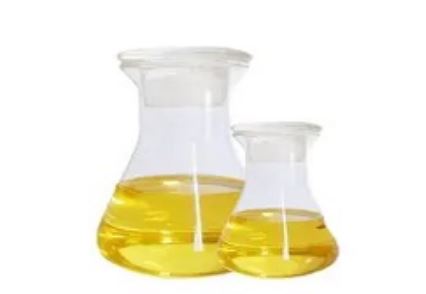Tel: 0129-4001010 Phone: +91 730 321 5033
Email: cs@absoluteveritas.com
BIS CERTIFICATION FOR RUBBERSEED FATTY ACIDS IS 12124:1987
In today's competitive landscape, maintaining market presence without a certified, high-quality product can be challenging. Obtaining a BIS license may also be essential for selling products in the Indian market. To achieve BIS certification and ensure product quality, manufacturers must adhere to the specified Indian standards.
As mandated by the Rubberseed Fatty Acids (Quality Control) Order, 2022, BIS certification is compulsory for Rubberseed Fatty Acids, as specified by the Bureau of Indian Standards. Rubberseed Fatty Acids must comply with IS 12124:1987 standards and exhibit the ISI Mark under a Bureau of Indian Standards license, following Scheme-I of Schedule-II of the Bureau of Indian Standards (Conformity Assessment) Regulations, 2018.
To acquire a BIS certificate for Rubberseed Fatty Acids, manufacturers need to ensure adherence to relevant Indian standards. IS 12124:1987 serves as the Indian standard for Rubberseed Fatty Acids.
Let's examine IS 12124:1987 for Rubberseed Fatty Acids more closely.
This standard outlines the specifications, sampling procedures, and testing methods for Rubberseed Fatty Acids.
There are two varieties of material: soft and hard. The soft type represents the distilled form of rubberseed fatty acid. Meanwhile, the fatty acid derived from rubberseed oil, whether hydrogenated before or after distillation, is categorized as the hard type.
The material is obtained by distilling raw rubberseed fatty acid, which is obtained through the breakdown of rubberseed oil. If a solvent is employed in the production of oil or fatty acid, a minimum flash point is mandatory. It must be devoid of sediments, impurities, suspended particles, foreign matter, and separated water, exhibiting clarity upon melting. Additionally, it must adhere to the stipulations outlined in the standard.
TESTS
The subsequent test must be conducted for Rubberseed Fatty Acid.
-
Test for free mineral acidity
-
Determination of ash
PACKING AND MARKING
Packing and labeling must comply with the standards outlined in IS 12124:1987. The material should be placed in suitable containers, securely sealed, and labeled with vital information including the material name and grade, net weight, batch or lot number, manufacturing date, manufacturer's name, and trademark. Additionally, the container may optionally display the standard mark (ISI Mark).
To utilize the standard mark (ISI Mark), the manufacturer is required to acquire a BIS license for Rubberseed Fatty Acids from the Bureau of Indian Standards. This license is awarded following a comprehensive evaluation of manufacturing infrastructure, processes, quality control, and testing capabilities conducted during an onsite visit to the manufacturing premises by BIS.
PROCESS FOR BIS ISI MARK CERTIFICATION

BIS CERTIFICATION PROCESS
Acquiring a BIS license requires a comprehensive review of manufacturing infrastructure, quality control abilities, testing resources, and production procedures. This thorough assessment guarantees that products not only adhere to regulations but also prioritize consumer safety and reliability.
NOTE:
For comprehensive guidance on the BIS ISI Certification process, please explore:
WHY USE ABSOLUTE VERITAS?
Absolute Veritas is a prominent organisation from the private sector of India primarily dealing with the Inspection, Testing, Audits, Certification of products& consulting services to various industries in India and worldwide, ensuring compliance with regulatory standards and industry requirements. Offering a comprehensive range of services including product certification, testing, training, auditing, and compliance services, Absolute Veritas helps manufacturers and importers achieve higher production efficiency and quality standards.
Absolute Veritas (AV) will handle end to end pre-registration request, sample preparation, documentation, testing and application process for FMCS Certification
For any questions regarding the most recent update on FMCS registration licenses, please reach out to us via email at cs@absoluteveritas.com








 ❮
❮
